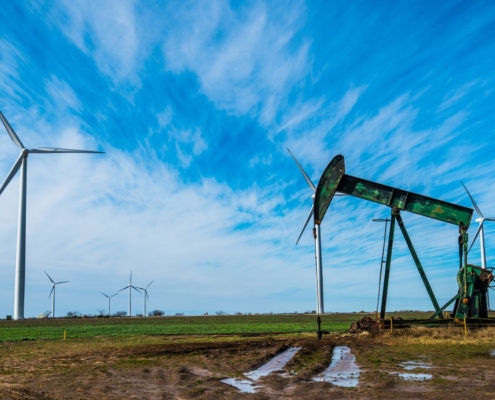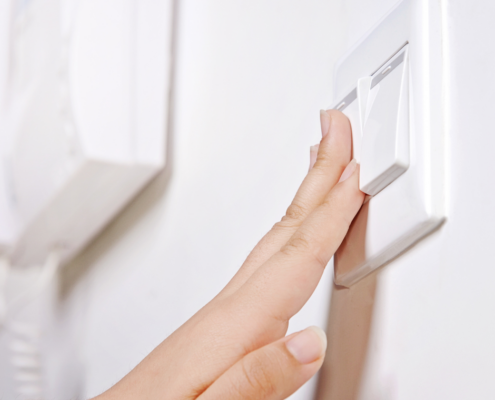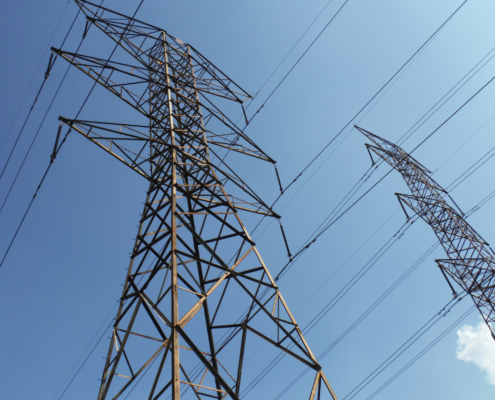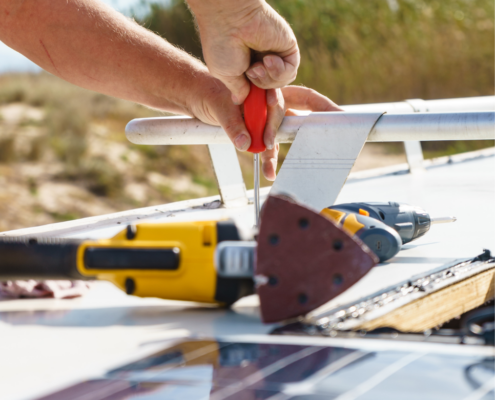Last Updated on June 24, 2022 by Mary Pressler
The Importance on Energy Conservation
Renewable energy sources have received plenty of media attention in recent years, but the conservation of electricity is also important for sustainability. As clean technologies replace non-renewable and polluting energy sources, there are benefits for human health and for the environment. However, the best results are achieved when clean power is combined with energy conservation, reducing the pressure to invest in new grid infrastructure.
Environmental Reasons to Save Energy
All power generation systems have an environmental impact that must be considered before an investment decision. This is evident when dealing with fossil fuels, since their combustion releases a constant stream of greenhouse gases into the atmosphere. However, even solar arrays and wind turbines have an environmental impact when you consider their entire life cycle:
- Raw materials must be mined, processed, and delivered to production facilities.
- Power generation components must then be manufactured and assembled.
- The finished products must be transported to retail locations and project sites.
- The construction process also has an environmental impact: some waste is unavoidable, heavy machinery releases emissions, and an ecosystem is disrupted.
- Finally, there are many components that become waste when the power plant reaches the end of its service life. Some components can be recycled for new projects, but the process consumes resources and energy.
Of course, clean power technologies have a minimal impact once a project is completed and operational, while power plants fired by fossil fuels release air pollutants during their entire service life. Consider that fossil fuels not only produce emissions when used in power plants; there are also transportation emissions during their delivery.
Energy conservation allows more buildings to operate with the existing capacity. For instance, if a country reduces its power demand by 1,000 MW, that installed capacity becomes available to serve new infrastructure. Without energy conservation, on the other hand, the 1,000 MW gap must be filled with new power stations.
Why Energy Conservation Makes Sense Financially
In addition to having environmental benefits, energy conservation makes sense from the financial standpoint. Since homes and businesses pay for the energy they use, measures that reduce consumption have an economic return. An energy audit is the best starting point for property owners: every building is unique, and the optimal combination of energy efficiency measures changes depending on site conditions.
When energy conservation is implemented at large, there are benefits for both utility companies and consumers. Power and gas companies can delay expensive upgrades to their distribution systems, and users are spared from the corresponding rate increases. Given the benefits of energy conservation, many utility companies have introduced financial incentives for users who deploy energy efficiency measures.
Inefficient use of electricity creates upward pressure on electric rates, for several reasons:
- Electricity consumption does not increase evenly for all hours, concentrating around peak hours instead. Most power networks experience peak demand in the evening, when most of the population is returning home and using appliances.
- Peak demand is expensive to meet, since utility companies must have “peaker” power plants on standby, just to run a few hours each day.
- Power grids must also expand their transmission and distribution capacity according to the growth in peak demand, even if that means having plenty of idle capacity the rest of the day.
The factors above lead to power grids that are more expensive to operate, and these added costs are transferred to customers as increased kilowatt-hour prices. Energy conservation becomes even more valuable when it helps prevent peaks in demand, since the electricity saved in this case is the most expensive to produce.
In Conclusion
Energy conservation makes sense environmentally and financially. When buildings become more efficient, power grids require less investment to keep up with demand. This reduces the total ownership cost of power systems, as well as their environmental impact.
Energy conservation also brings individual benefits to property owners, and energy efficiency measures are among the best building upgrades available. Consider that electricity bills represent a significant share of building operation costs, and gas bills can also be high in places with harsh winters.
 https://quickelect.seobranddev.net/wp-content/uploads/2021/01/Woman-changing-to-prepaid-electricity-in-Houston-Texas.jpg
563
1000
Mary Pressler
https://quickelect.seobranddev.net/wp-content/uploads/2021/10/Quick-Electricity-Logo--300x79.jpg
Mary Pressler2023-12-13 13:10:182023-12-13 13:16:26Texas Prepaid Electricity VS Monthly Billing
https://quickelect.seobranddev.net/wp-content/uploads/2021/01/Woman-changing-to-prepaid-electricity-in-Houston-Texas.jpg
563
1000
Mary Pressler
https://quickelect.seobranddev.net/wp-content/uploads/2021/10/Quick-Electricity-Logo--300x79.jpg
Mary Pressler2023-12-13 13:10:182023-12-13 13:16:26Texas Prepaid Electricity VS Monthly Billing https://quickelect.seobranddev.net/wp-content/uploads/2023/11/Texas-Energy-Outlook-for-Winter-2023-2024.jpg
887
1058
Mary Pressler
https://quickelect.seobranddev.net/wp-content/uploads/2021/10/Quick-Electricity-Logo--300x79.jpg
Mary Pressler2023-11-17 12:28:372023-11-17 12:28:37Texas Energy Outlook for Winter 2023-2024
https://quickelect.seobranddev.net/wp-content/uploads/2023/11/Texas-Energy-Outlook-for-Winter-2023-2024.jpg
887
1058
Mary Pressler
https://quickelect.seobranddev.net/wp-content/uploads/2021/10/Quick-Electricity-Logo--300x79.jpg
Mary Pressler2023-11-17 12:28:372023-11-17 12:28:37Texas Energy Outlook for Winter 2023-2024 https://quickelect.seobranddev.net/wp-content/uploads/2023/10/generac-home-generator_powerpact-7kw_8ts_6998_hero.png
480
768
Mary Pressler
https://quickelect.seobranddev.net/wp-content/uploads/2021/10/Quick-Electricity-Logo--300x79.jpg
Mary Pressler2023-10-15 11:22:202023-10-16 15:33:48A Guide to Generac Power Generators
https://quickelect.seobranddev.net/wp-content/uploads/2023/10/generac-home-generator_powerpact-7kw_8ts_6998_hero.png
480
768
Mary Pressler
https://quickelect.seobranddev.net/wp-content/uploads/2021/10/Quick-Electricity-Logo--300x79.jpg
Mary Pressler2023-10-15 11:22:202023-10-16 15:33:48A Guide to Generac Power Generators https://quickelect.seobranddev.net/wp-content/uploads/2023/09/Electricity-Disconnection-Rules-Learn-When-Your-Electric-Can-Not-Be-Disconnected.png
788
940
Mary Pressler
https://quickelect.seobranddev.net/wp-content/uploads/2021/10/Quick-Electricity-Logo--300x79.jpg
Mary Pressler2023-09-25 12:38:472023-09-25 12:38:47Electricity Disconnection Rules
https://quickelect.seobranddev.net/wp-content/uploads/2023/09/Electricity-Disconnection-Rules-Learn-When-Your-Electric-Can-Not-Be-Disconnected.png
788
940
Mary Pressler
https://quickelect.seobranddev.net/wp-content/uploads/2021/10/Quick-Electricity-Logo--300x79.jpg
Mary Pressler2023-09-25 12:38:472023-09-25 12:38:47Electricity Disconnection Rules https://quickelect.seobranddev.net/wp-content/uploads/2023/09/Time-of-Use-Electricity-Plans-All-You-Need-to-Know-2.png
788
940
Mary Pressler
https://quickelect.seobranddev.net/wp-content/uploads/2021/10/Quick-Electricity-Logo--300x79.jpg
Mary Pressler2023-09-07 11:31:532023-09-07 11:59:31How to Save Money with Time Of Use Electricity Plans
https://quickelect.seobranddev.net/wp-content/uploads/2023/09/Time-of-Use-Electricity-Plans-All-You-Need-to-Know-2.png
788
940
Mary Pressler
https://quickelect.seobranddev.net/wp-content/uploads/2021/10/Quick-Electricity-Logo--300x79.jpg
Mary Pressler2023-09-07 11:31:532023-09-07 11:59:31How to Save Money with Time Of Use Electricity Plans https://quickelect.seobranddev.net/wp-content/uploads/2023/08/Electricity-Cost-Trends-in-Texas-Will-Energy-Rates-Continue-to-Rise-1.png
788
940
Mary Pressler
https://quickelect.seobranddev.net/wp-content/uploads/2021/10/Quick-Electricity-Logo--300x79.jpg
Mary Pressler2023-08-16 11:20:072023-08-16 11:20:07Electricity Cost Trends in Texas
https://quickelect.seobranddev.net/wp-content/uploads/2023/08/Electricity-Cost-Trends-in-Texas-Will-Energy-Rates-Continue-to-Rise-1.png
788
940
Mary Pressler
https://quickelect.seobranddev.net/wp-content/uploads/2021/10/Quick-Electricity-Logo--300x79.jpg
Mary Pressler2023-08-16 11:20:072023-08-16 11:20:07Electricity Cost Trends in Texas https://quickelect.seobranddev.net/wp-content/uploads/2019/09/shutterstock_552441388.jpg
680
1000
Mary Pressler
https://quickelect.seobranddev.net/wp-content/uploads/2021/10/Quick-Electricity-Logo--300x79.jpg
Mary Pressler2023-08-12 19:06:232023-08-13 07:33:51Today’s Electricity Prices in Dallas
https://quickelect.seobranddev.net/wp-content/uploads/2019/09/shutterstock_552441388.jpg
680
1000
Mary Pressler
https://quickelect.seobranddev.net/wp-content/uploads/2021/10/Quick-Electricity-Logo--300x79.jpg
Mary Pressler2023-08-12 19:06:232023-08-13 07:33:51Today’s Electricity Prices in Dallas https://quickelect.seobranddev.net/wp-content/uploads/2023/07/DIY-Solar-Power-Systems-1.png
1250
966
Mary Pressler
https://quickelect.seobranddev.net/wp-content/uploads/2021/10/Quick-Electricity-Logo--300x79.jpg
Mary Pressler2023-07-25 09:33:512023-07-25 09:33:51DIY Solar Power Systems
https://quickelect.seobranddev.net/wp-content/uploads/2023/07/DIY-Solar-Power-Systems-1.png
1250
966
Mary Pressler
https://quickelect.seobranddev.net/wp-content/uploads/2021/10/Quick-Electricity-Logo--300x79.jpg
Mary Pressler2023-07-25 09:33:512023-07-25 09:33:51DIY Solar Power Systems https://quickelect.seobranddev.net/wp-content/uploads/2023/07/Natural-Gas-Service-in-Texas-.png
788
940
Mary Pressler
https://quickelect.seobranddev.net/wp-content/uploads/2021/10/Quick-Electricity-Logo--300x79.jpg
Mary Pressler2023-07-20 15:09:232023-07-20 15:13:09Getting Natural Gas Service in Texas
https://quickelect.seobranddev.net/wp-content/uploads/2023/07/Natural-Gas-Service-in-Texas-.png
788
940
Mary Pressler
https://quickelect.seobranddev.net/wp-content/uploads/2021/10/Quick-Electricity-Logo--300x79.jpg
Mary Pressler2023-07-20 15:09:232023-07-20 15:13:09Getting Natural Gas Service in Texas
